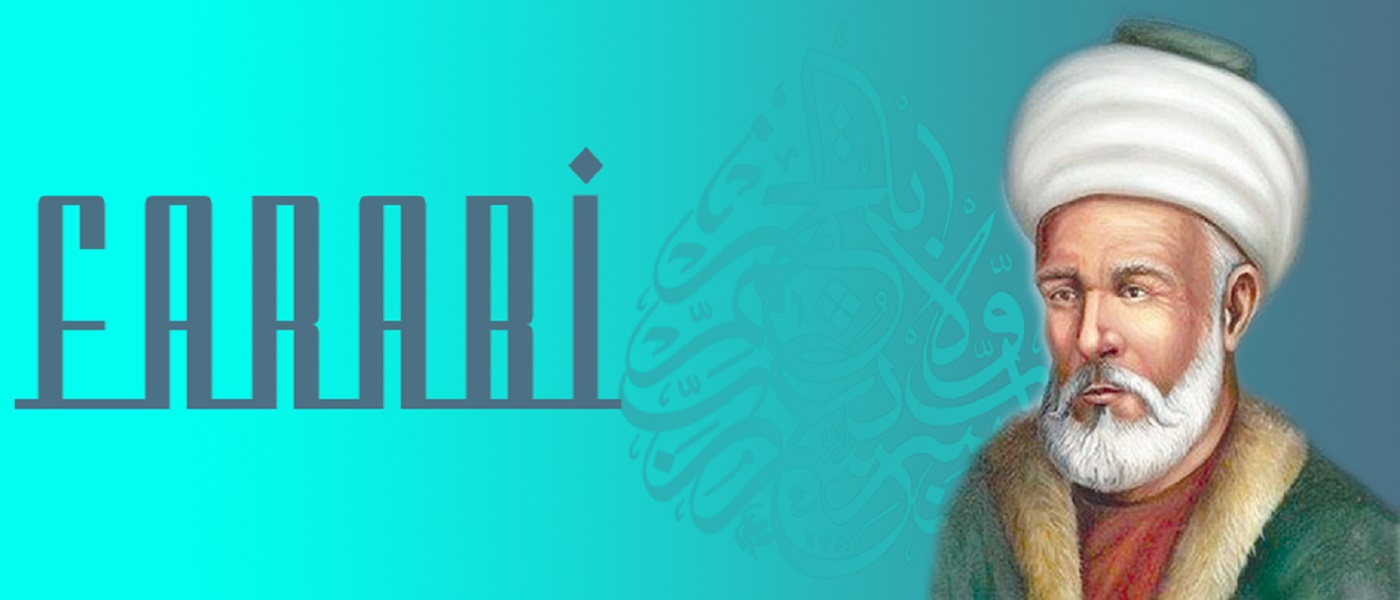

What Are the Solutions to Depression and Stress in Islam: Part1
In the era we are living in today, stress and stress-related illnesses such as depression and anxiety are becoming of the biggest killers, and the effects that they have on our emotional and physical health can be devastating. Stress, as a highly personalized phenomenon, varies between people depending on individual vulnerability and resilience. How could one build up that strength required to beat the stress in Islam?
How could one manage to control anxiety and relieve stress in Islam?
Here are some of the solutions that Islam proposes.
Having Real Faith in God
In Islamic teachings and narrations, the faith in God is known to be the first and the most efficient approach to achieve the inner peace and the control over anxiety and stress in Islam. Imam Ali (AS) said that having faith in God equals being safe and secure [1] &[2]. Believers know that there is a goal behind every happening. They believe that God is just; hence, they have not been just created and left to live some days in this world and suffer for nothing. But, they are created to pass all the difficulties to reach the perfection that they deserve.
That is why a believer rarely loses hope and even if gets disappointed, knows that he/she has a God who has promised to help him/her: “you who have faith, if you support Allah, He will support you” (47:7); “Whoever is wary of Allah, He shall make for him a way out [of the adversities of the world and the Hereafter]” (65:2). The opposite view on this matter is that life evolved spontaneously. This implies that there is no wisdom or goal behind the actual and future happenings, and this can be stressful by itself.
As stated earlier, the faith in God is the key to the inner peace. To be efficient, the faith should be practiced and manifested in one’s acts. Here are some practices that increase one’s faith in God and also relieve the stress in Islam.
Prayer (Salat) and invocation (Dua)
The two possible ways to remember God are prayer (Salat) and invocation (Dua). In Surah R’ad it is stated that the hearts find rest in Allah’s remembrance (13:28). Also, God has promised: “Remember Me, and I will remember you” (2:152). The more consciously and concentrated one does the prayer and invocation, the more relief he\she will experience. During prayers, one spends some moments talking to God as the superior infinite power in the universe. This helps to overcome sorrow, just as talking with another person might do.
Reading the Quran and Contemplation
Reading the Quran and perceiving the divine messages is another practice that brings considerable relief. The caring advises that exist in Quran and that nice feeling of knowing that the creator of the whole universe is mindful of us, are relaxing. It is narrated from Imam Ali (AS) that the cure for the illnesses can be found in the Quran [3]. Also, Prophet Muhammad (PBUH) has advised reading Quran regularly as it lightens the heart and makes it alive [4].
Fasting in Islam
Fasting is known to be an anti-stress practice [5]. One of the reasons that one feels stressful and anxious is the lack of determination. He/she often thinks that he/she is not able to ameliorate such a condition, nor can he/she control his/her confusing thoughts. But fasting is a good chance to strengthen one’s character and to change the attitudes and acts.
In addition to spiritual practices mentioned above, some other activities are known in Islam to heal the stress:
Seeking knowledge
Seeking knowledge and wisdom is believed to enlighten the heart and keeps it alive and active. Imam Ali (AS) said: “Surely the hearts get tired just like the bodies, so seek for them new objects of wisdom” [6]. It is encouraged to seek wisdom, for Allah enlivens the dead heart through the light of wisdom just as He enlivens the dead earth through water from the sky [7]. So, one should dedicate some time every day to read or listen to the wisdom that inspires him spiritually.
Working
Idling the days away and almost doing nothing in life are severely blamed in Islam since it is believed to corrupt one’s mind and body [8]. A corrupted mind might tempt to perverted thoughts and imaginations, evil intentions, laziness, etc. that will ruin one’s life in this world and the Hereafter [9]. Imam Sadeq (AS) has strongly disapproved laziness and apathy [10]&[11]. The reason is that these two characteristics hinder one to profit from this world and the Hereafter [10] and cause him to be humiliated by the others [11] which can lead to the isolation of the lazy person and the consequent psychological problems.
References:
- “Ghurar al-Hikam wa Durar al-Kalim”, T. 771.
- “Ghurar al-Hikam wa Durar al-Kalim”, T. 2839.
- “Nahj al-Balagha”, p. 223, no. 158.
- H. al-Bahrani,“Al-Burhan fi tafsir al-Quran”, vol. 1, p. 19.
- M. Reyshahri, "Mizan al-Hikma," T. 10671".
- “Nahj al-Balagha”, No. 197.
- stress in life
- Al-Shaykh al-Mufid, "Al-Irshad", vol. 1, p. 298.
- “Tuhaf al-Uqul”, p. 300.
- M. al-Kulaynī, “Al-Kafi”, vol. 5, p. 85.
- “Tuhaf al-Uqul”, p. 304.
Share This Article

Do Muslims Celebrate Christmas?
Some people ask why Muslims do not celebrate Christmas? Is that because they do not agree on the 25th of December as Jesus birthday? Or is that because they say Christians believe in Jesus as the son of God, while Muslims do not believe in Trinity, as well as they believe that Islam is the religion that is more complete than Christianity and all other religions that came in the past; the same way that Christians believe that Christianity is a more complete religion than Judaism.
But let’s put aside the issue of Islamic view on the date of birth of Prophet Jesus (PBUH). The most important fact that causes Muslims not to wish to celebrate Christmas is the matter of identity. Do Muslims expect Christians or Jews to celebrate Islamic occasions? Does it not sound logical that each culture celebrates its own occasions and rituals? Of course, people who were born Muslims in Muslim countries or communities would like to celebrate their own occasions.
But here we are discussing the issue of those who have converted to Islam. Or those who are Muslim and live in societies with a majority of Christians.
Is it forbidden (Haram) for Muslims to celebrate Christmas?
Jesus in Islam
Prophet Jesus (PBUH) is among the Prophets whose names and stories have been mentioned in many chapters of the Holy Quran. This shows the high status of Prophet Jesus (PBUH) and his respected mother – Mary- for Muslims. Prophet Jesus (PBUH) and his mother are so beloved for Muslims that many Muslims name their children after them, and the Islamic society takes every possible chance to admire their position.
It is for this very high level of respect for the Prophet Jesus (PBUH) that Muslims will be offended when he is called the son of God. Since Allah says in the Holy Quran “ That they attribute to the Most Merciful a son. And it is not appropriate for the Most Merciful that He should take a son. There is no one in the heavens and earth but that he comes to the Most Merciful as a servant.” (19: 91-3)
In the same chapter, Allah says “The Messiah, son of Mary, was not but a messenger; [other] messengers have passed on before him. And his mother was a supporter of truth. They both used to eat food. Look how We make clear to them the signs; then look how they are deluded.” (5:75)
Taking part in Christmas parties for Muslims
The ruling on taking part in Christmas parties is the same as taking part in any other party. It is allowed to participate in Christmas parties if there is no forbidden (Haram) act taking place; such as drinking, backbiting or forbidden (Haram) music, singing, or dancing [i], etc.
In Islamic jurisprudence, there is no harm in celebrating the birthday of Prophet Jesus (PBUH). Also if Muslims do not wish to celebrate Christmas among their cultural occasion, it is forbidden (Haram) to disrespect Christian rituals.
Do Converts Have any Duty Regarding Their Christian Family?
“And We have enjoined upon man [care] for his parents. His mother carried him, [increasing her] in weakness upon weakness, and his weaning is in two years. Be grateful to Me and to your parents; to Me is the [final] destination. But if they endeavor to make you associate with Me that of which you have no knowledge, do not obey them but accompany them in [this] world with appropriate kindness …” (31:14-15)
The above verses clearly define that respecting and caring for parents in the eyes of God is not because of their religion. But He says that you have to respect them, only because your mother carried you for nine months and fed you when you were a weak baby. Therefore non-Muslim parents have all the rights that Muslim parents have. And there is no difference between Muslim or non-Muslim parents if they ask you to do something which is not accepted by God. In those cases, you have to disobey them BUT keep respecting them and behave kindly towards them.
Congratulating Christmas to Christians
Congratulating Christmas to Christians is not forbidden (Haram), as long as it is not considered to be a confirmation of their belief in Trinity while keeping in mind that you believe that Islam is the last religion sent by God to complete the past religions, but it is rather recommended to respect our relatives, friends or neighbors who are Christians with congratulating them on their happy occasions.
The Duty of Muslims in Celebrating Christmas
Although we discussed that Muslims who live in Islamic countries or Western countries would rather celebrate their own cultural occasions among their Islamic communities, there is a duty upon those Muslims who live in the West and may live with non-Muslim friends and families.
It is a duty upon every individual Muslim to spread the words of God as much as possible. And if a Muslim has the position of clarifying the status of prophet Jesus (PBUH) as a prophet and not the son of God or as a god, then he/ she should not take this opportunity for granted and mention the fact that Jesus (PBUH) was not but a respected Prophet of God.
However, it is not obligatory for Muslims to speak out about this issue when they participate in Christmas parties (in which no forbidden (Haram) act will take place), but if there is a chance of talking about the issue, it would be good to mention the Islamic opinion about the Prophet Jesus (PBUH).
Notes:
[i] Read about forbidden (Haram) music in the related article.
[ii] “This day [all] good foods have been made lawful, and the food of those who were given the Scripture is lawful for you, and your food is lawful for them. And [lawful in marriage are] chaste women from among the believers and chaste women from among those who were given the Scripture before you, when you have given them their due compensation, desiring chastity, not unlawful sexual intercourse or taking [secret] lovers. And whoever denies the faith - his work has become worthless, and he, in the Hereafter, will be among the losers.” (5: 5)
References:
Read More

Al Farabi The Second Master
Had it not been for his coherent explanations on Aristotle’s Metaphysics, Avicenna would probably never have been able to understand it; he read Aristotle forty times, but it was just through the straightforward and comprehensive commentaries of Al Farabi that he finally realized Aristotle’s ideas on Metaphysics.
The great Muslim philosopher, logician, and cosmologist, Abu Nasr Muhammad ibn Muhammad Farabi, was born in 872 A.D. in Farab, Khurasan, to Iranian parents. He spent most of his life in Baghdad and from a very early youth started learning the teachings of Islam and the Holy Quran under the training of the best Islamic philosophers and scholars. He traveled to many countries, including Egypt and Syria. He died in 950 or 951 A.D. in Damascus, Syria.
In philosophy, he is considered to be the second in rank after Aristotle, and is called “the second teacher” and on some occasions “the second master” [1]. His wise and easy to understand explanations shed a clear light on the complex philosophy of Aristotle, to the point that many western philosophers owed their appreciation of “the first teacher”’s philosophy to Al-Farabi [2].
Moreover, he is the founder of Islamic philosophy. He genuinely believed in the existence of the first cause -God, Allah- and admitted the limits of human knowledge in understanding the nature of it [3].
In one of his most notable works “Al-Madina Al-Fadila” (The Virtuous City) which is basically about political philosophy, he argues that the favorable form of government is the one ruled by a prophet or Imam. Accordingly, the city of Medina when it was ruled by Prophet Muhammad (PBUH) was the ideal kind of society that would ultimately guide human beings to everlasting felicity both in this world and the world that is to come.
He also criticized those philosophers who do not utilize their knowledge for the benefit of their society. He compared the philosopher's role in society with a physician’s relation to the body; the body's health is affected by the 'balance of its humors just as the city is determined by the moral habits of its people. The philosopher's duty, he says, is to establish a ‘virtuous’ society by healing the souls of people, establishing justice, and guiding them towards 'true happiness' [4].
He was also a grandmaster of music; “He is said to have created musical compositions. To this day there are melodies in Anatolian music and rags in classical North Indian music attributed to him, sung and performed by masters of these musical genres”[5]. His famous book on music, Kitab al-musiqi al-Kabir ("The Great Book of Music"), is the study of the theory of Persian music and the philosophical principles of music, its cosmic qualities, and influence.
His other well-known book is called Kitab ihsa al-ulum ("On the Introduction of Knowledge"). It consists of eight parts, each dealing with one branch of science such as linguistics, logic, mathematics, astronomy, metaphysics, Islamic jurisprudence, Islamic science of dialectic and discourse, as well as politics[6].
Finally, Al-Farabi, one of the greatest Muslim philosophers, is a universal phenomenon whose innovative and sensible ideas marked a turning point in the history of philosophy. His philosophy was easy to understand and apply to real-life which is the essence of the sharia of Islam; a religion with rules that are highly compatible with human nature and if followed would bring satisfaction as well as peace.
References:
- Ian Richard Netton. “al-Farabi, Abu Nasr" .Islamic Philosophy from the Routledge Encyclopedia of Philosophy.
- F.W Zimmermann, Al-Farabi 's Commentary and Short Treatise on Aristotle 's De Interpretation, Oxford, 1981.
- Ian Richard Netton. Breaking with Athens: Alfarabi as Founder, Applications of Political Theory by Christopher A.Colmo".
- Charles Butterworth. Ethical and Political Philosophy in Adamson, P, and Taylor, R. The Cambridge Companion to Arabic Philosophy
- Hussein Nasr, Mehdi Aminrazavi. “An Anthology of Philosophy in Persia," Vol. 1: From Zoroaster to ‘Umar Khayyam”, I.B.
- Hamid Taleb Zadeh. Philosophy (Introduction to Islamic philosophy) the field of humanity, for pre-university students.
Read More

